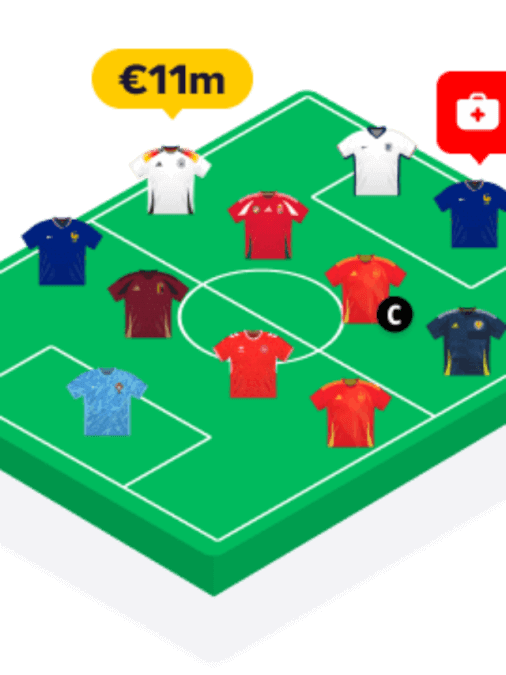Proper nutrition is crucial for young footballers, as it provides the fuel necessary for optimal performance on the field. However, managing a balanced diet can be more challenging for athletes dealing with food allergies and intolerances.
These conditions, if not handled carefully, can negatively impact performance and well-being. This guide provides practical strategies for managing common food allergies and intolerances, ensuring that young athletes receive safe, nutritious, and performance-enhancing meals.
Understanding Food Allergies and Intolerances
Before diving into meal strategies, it’s essential to distinguish between food allergies and food intolerances:
- Food Allergies: These occur when the immune system mistakenly identifies a harmless food as a threat, leading to symptoms that can range from mild (hives, itching) to severe (anaphylaxis). Common allergens include peanuts, tree nuts, dairy, eggs, and wheat.
- Food Intolerances: Unlike allergies, intolerances do not involve the immune system. Instead, they result from difficulty digesting certain foods, leading to symptoms like bloating, gas, and stomach cramps. Lactose and gluten intolerances are common examples.
Impact of Food Allergies and Intolerances on Football Performance
Young athletes with unmanaged food allergies or intolerances may experience reactions that can disrupt their performance.
For instance, a footballer with a gluten intolerance who accidentally consumes gluten may suffer digestive discomfort, making it harder to focus on the game. Similarly, an athlete with a dairy allergy may face breathing difficulties or swelling if exposed to dairy products.
Early identification and management are critical to avoiding such setbacks. If you’re curious about what makes an ideal diet for young footballers, you can explore our guide on understanding macronutrients, which breaks down the role of carbs, proteins, and fats in athletic performance.
Strategies for Managing Food Allergies in Young Footballers
1. Meal Planning for Athletes with Allergies
Planning meals around food allergies doesn’t have to be a challenge. By replacing allergenic foods with safe, nutritious alternatives, parents and coaches can ensure young athletes are properly fueled. Here are some practical suggestions:
| Allergen | Safe Alternatives |
|---|---|
| Dairy | Almond milk, soy milk, coconut yogurt |
| Eggs | Flaxseed meal, applesauce, mashed banana (in baking) |
| Wheat (Gluten) | Quinoa, rice, gluten-free oats, corn |
| Nuts | Sunflower seed butter, pumpkin seeds |
For more on how to structure meals effectively, you can also check our comprehensive meal plan guide to create balanced, nutritious meals tailored to young footballers’ needs.
2. Substituting Allergen-Rich Foods
Replacing common allergenic ingredients with safe alternatives can help young athletes avoid harmful reactions without compromising on nutrition. For example:
- Dairy-Free Alternatives: Substitute regular milk with almond or oat milk, and use coconut yogurt in place of traditional dairy yogurt. If lactose intolerance is a concern, our article on hydration hacks also discusses non-dairy hydration options.
- Gluten-Free Alternatives: Replace wheat-based products with rice, quinoa, and gluten-free bread or pasta.
For young footballers with gluten intolerance or celiac disease, it’s crucial to incorporate these gluten-free alternatives into their meals to prevent any digestive discomfort during games and training sessions.
Tips for Parents and Coaches on Managing Allergies
1. Educating Coaches and Teammates
Ensuring that coaches and teammates are aware of a player’s food allergies is key to preventing accidental exposure. Coaches should be trained to recognize symptoms of allergic reactions, and teammates can be taught to offer support if a reaction occurs. Establishing clear communication between parents, coaches, and athletes is essential to creating a safe environment.
2. Safe and Nutritious Meal Preparation
When preparing meals or snacks for a team, make sure to:
- Read food labels carefully to avoid allergens.
- Prepare allergen-free snacks to take to games or practice. For ideas, you can explore healthy snack options for young players, which offers great alternatives that are both safe and nutritious.
- Avoid cross-contamination by using separate utensils and equipment when preparing allergen-free meals.
3. Emergency Preparedness
Always be prepared for potential allergic reactions. Parents should provide the coach with epinephrine auto-injectors (like an EpiPen) and ensure they know how to use them in case of an emergency. Coaches should also be informed about the steps to take during a severe allergic reaction (anaphylaxis).
Managing Food Intolerances
1. Lactose Intolerance
Lactose intolerance can be easily managed by avoiding dairy products and opting for lactose-free alternatives, such as almond milk or coconut yogurt. These provide similar nutritional benefits without the digestive issues associated with lactose. Remember, calcium and vitamin D are crucial for bone health, especially for growing athletes, so it’s important to incorporate fortified dairy-free alternatives.
For more information on the role of essential nutrients, explore the importance of vitamins and minerals in football performance.
2. Gluten Sensitivity
Gluten intolerance can result in bloating, cramps, and fatigue. To avoid these symptoms, athletes with gluten sensitivities should switch to gluten-free grains like quinoa, rice, and corn. This ensures they maintain energy levels without compromising their digestive health.
Maintaining a balanced diet without gluten can be a challenge, but it’s essential to ensure athletes get the necessary carbs for energy. If you’re curious about how carbohydrates fuel young footballers, you can learn more in our piece on macronutrients.
Sample Allergen-Free Meal Plan
Here’s an example of a balanced, allergen-free meal plan for a young footballer:
| Meal | Suggested Foods |
|---|---|
| Breakfast | Oatmeal made with almond milk, topped with fresh fruit and chia seeds. |
| Lunch | Grilled chicken breast, quinoa, and roasted vegetables (gluten and dairy-free). |
| Snack | Carrot sticks with hummus, or a gluten-free granola bar. |
| Dinner | Brown rice, steamed broccoli, and baked salmon with olive oil. |
| Post-Game Snack | Coconut yogurt with mixed berries (dairy-free). |
For more ideas on what to feed your athlete after a game, check out our article on post-game recovery foods.
Conclusion
Handling food allergies and intolerances in young footballers requires careful planning, education, and communication.
With the right knowledge and strategies, parents and coaches can ensure that their athletes stay safe and well-nourished. From allergen-free meal plans to emergency preparedness, creating a supportive environment is key to helping young players thrive both on and off the field.
By understanding the unique nutritional needs of young footballers, you can foster an atmosphere that encourages performance, health, and safety. Be sure to stay informed and proactive, and always consult a healthcare provider for specific dietary advice.
Key Takeaways
| Topic | Key Points |
|---|---|
| Food Allergies | Can cause serious reactions; need for allergen-free alternatives. |
| Food Intolerances | Manageable through substitutes like almond milk and gluten-free grains. |
| Meal Preparation | Always read labels, avoid cross-contamination, and plan ahead. |
| Emergency Preparedness | Ensure coaches have epinephrine and understand action plans. |
| Nutritional Balance | Focus on safe alternatives without sacrificing nutrition. |









